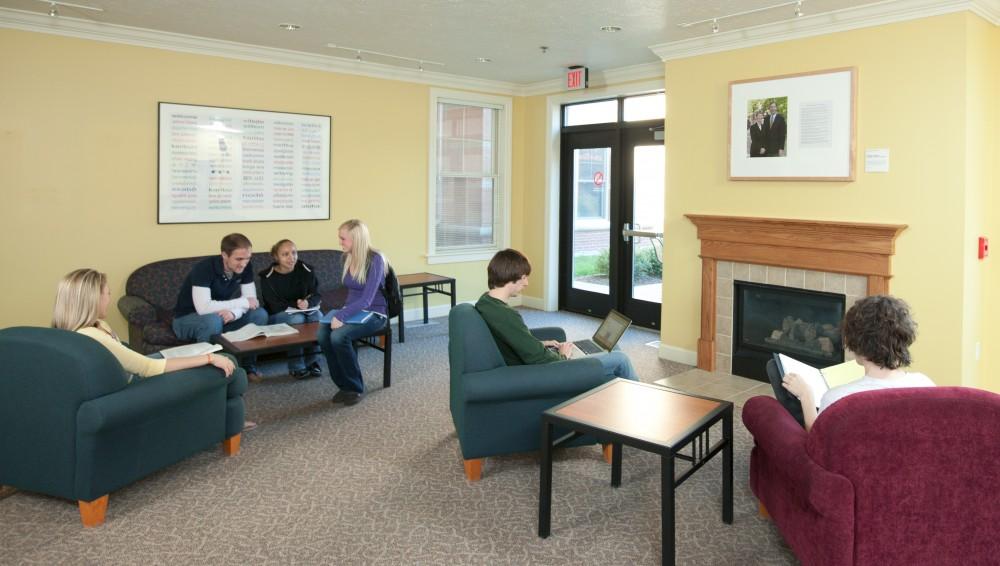Living and learning communities unite disciplines under one roof

Courtesy Photo / Heather Coar Living and Learing Centers put students with the same majors together, encouraging learning
Feb 7, 2011
Grand Valley State University introduced its first living and learning community in 1990 with the Honors College, a modest group that shared a floor in Robinson Living Center. Twenty years later, on the cusp of a new decade, GVSU has introduced three new program themes to the living and learning communities in a joint effort by the Division of Student Services, Housing and Residence Life, the College of Liberal Arts and Sciences and the Brooks College of Interdisciplinary Studies.
Colleen Lindsay-Bailey, assistant director of Housing and Residence Life, said each theme aims to bring students with a common academic interests together to help enrich their academic experiences.
Women In Science Engineering (WISE) and Pre-Law Residential Living (PERL) are among the newer residential learning themes, which Director of Housing and Residence Life Andy Beachnau said tend to be faculty or program driven by student demand.
WISE supports women interested in the science and engineering field while the PERL community brings together students of any major interested in attending law school or pursuing a career in law.
Mark Richards, faculty advisor of PERL, said he regularly holds office hours at PERL to give students the opportunity to get advice on courses and preparation for law school. Events relevant to the living centers’ themes are held often as well. Richards, Senior Academic Advisor Caroline Cascini from the CLAS Advising Center and Office of Fellowships’ Director Amanda Cuevas held an advising event about globalization and graduate schools attended by about 40 students.
Sharing space with PERL on Murray’s first floor, the International House opened its doors in August of 2010 as GVSU’s most recent living and learning community with political science professor Polly Diven as the adviser of the globally based community. Five of its members are international students.
“The others students are studying international topics: international relations, international business, modern languages, political science,” she said.
Faculty from the aforementioned departments also hold regular office hours in the International House and offer tutoring services to residents, information sessions on study abroad, grad school and law school and internships.
“Grouping students along a common theme or curriculum increase student persistence and retention,” Beachnau said.
He added students who participate in residential learning communities tend to report a higher institutional satisfaction and a higher graduation rate.
“I can’t think of any disadvantages to a free program that helps students connect to the university and connect to other students with the same interests,” Lindsay-Bailey said.























